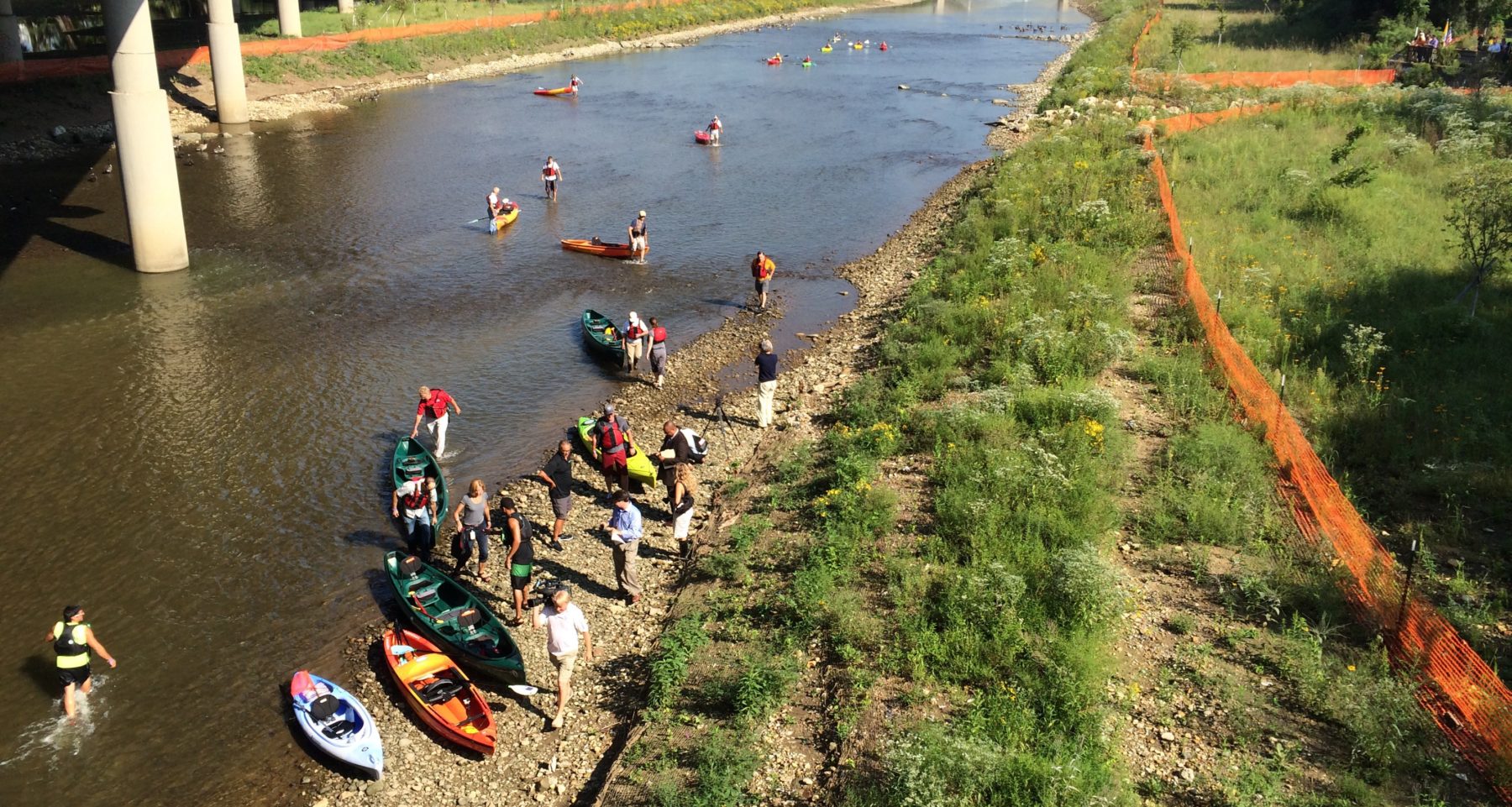Overview
When the 5th Avenue Dam was built on the Olentangy River in 1935, it served a useful
purpose – providing cooling water for a power plant on The Ohio State University
campus. Decades later, with the power plant long gone, the dam was not necessary.
Dams often impair the health of the rivers by disrupting natural flow patterns and
creating lake-like conditions that trap pollutants, sediment and obstruct the migration
of aquatic species. That’s exactly what was happening behind this dam, so the City of
Columbus retained Stantec to design its removal and restore 1.6 miles of the river to a
more natural state.
During the feasibility study, we established that only the top two feet of the dam needed
to be removed from the western half of the 470-foot long dam. Our natural channel
design deepened the river, reestablished its natural flow and form and created four
fringe wetland complexes. More than 7,500 mussels of 13 distinct species were rescued
and relocated to safer areas upstream and downstream of the restoration area. Seven
new riffles now provide prime habitat.
Nearly all sediment that was trapped behind the dam was recycled to restore and
expand the river’s banks. The newly narrowed and vegetated banks offer a continually
evolving green space that the university has already embraced as a center for research
and recreation. Now canoers and kayakers can freely paddle through this newly restored
stretch of the river, and fishermen are returning to the area as its biodiversity rebounds.
Quick Facts
Project Location:
Columbus, OH, USA, 39.9611755, -82.99879420000002
Geographic Region:
North America
Country or Territory:
United States of America
Biome:
Freshwater
Ecosystem:
Freshwater Rivers & Streams
Project Partners:
Stantec, City of Columbus
Location
Project Stage:
Planning / Design
Monitoring
The project does not have a monitoring plan.


